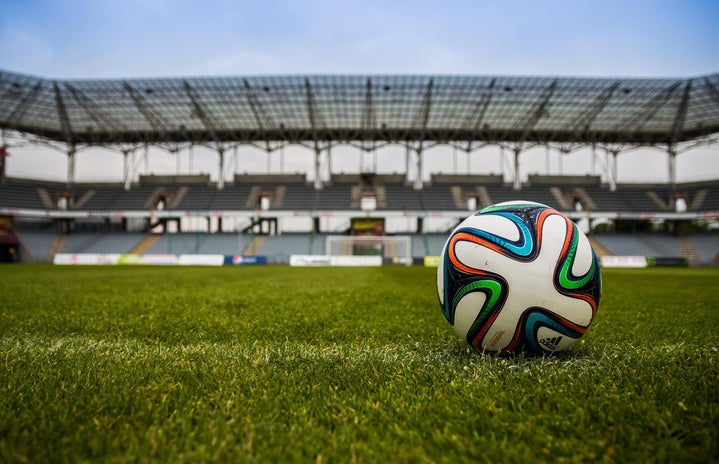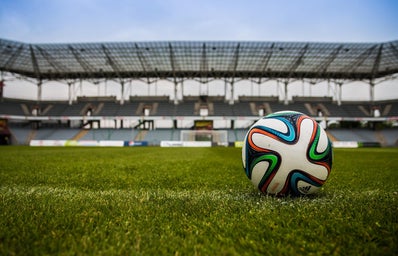On May 21, the Brazilian football player Vinicius Junior was once again a victim of racist abuse, this time during a match against Valencia, in Spain.
Part of Valencia’s crowd started shouting “mono” (monkey) and making racist gestures toward Vini Jr. The soccer player pointed at one of the aggressors, the play was stopped for eight minutes and then kept on going normally. Minutes later, Vini suffered a headlock from one of the opposite team’s players. After reacting and expressing his revolt at the lack of actions taken, the player was expelled from the match.
As the Real Madrid star himself said on his social media: It wasn’t the first time, nor the second, nor the third. Vini Jr. has been targeted for several racial abuses in Spain since he joined Real Madrid. According to research made by BBC, this was the tenth episode reported as racism suffered by the player during a LaLiga match. It is important to emphasize that this number is of the abuses that the public knows about, by being inserted in a structurally racist environment, the attacks are certainly not limited to screams in the stands.
The indifference of the Spanish authorities and LaLiga´s in the face of racist abuses makes room for attacks such as this to become routine. The few actions usually taken are not relevant enough, such as the irrelevance that the offenses only become more recurrent.
Even with formal complaints about such acts, of nine attacks, only two resulted in some type of punishment, while the other three complaints were shelved.
LaLiga’s president, Javier Tebas, was the first one to minimize the racism present in the football environment. After the occurrence, he responded to Vini’s tweet where he spoke up about the “incident”. Instead of going against the attacks and criticizing the fans, Tebas said that the football player wasn’t aware of the attitudes that LaLiga already took and told him to inform himself.
“We have tried to explain to you what LaLiga is and what it can do in cases of racism, but you have not shown up to either of the two agreed dates that you yourself requested. Before criticizing and insulting LaLiga, you need to inform yourself properly Vinícius,” Wrote LaLiga’s president.
In another tweet, Tebas stated that neither LaLiga nor Spain is racist.
What will it take for LaLiga finally do something?
If Tebas is so sure that LaLiga isn’t a racist institution, why even after nine attacks against Vinicius Jr. the organization still have not learned to deal with the attacks and refuses to adopt tougher measures?
It took ten racist incidents to the situation achieve a diplomatic conflict level, and make people realize that the problem is not just the racist fans, but also the authorities who are lenient.
In an interview with Veja magazine, the specialist in sports marketing Fábio Wolff explains the actual situation of the brand. “The image of LaLiga is losing value in the market since it does not know how to effectively combat the numerous racist acts present in the Spanish Championship, the vast majority against Vini Jr.”
If LaLiga refuses to do something, the pressure must come from what matters most to the brand, its profit. Soccer is a capitalist environment, and we are not going to get genuine anti-racist action, the only thing that will make the entity to take some efficient position is when their pockets start to hurt, and their image starts to get bad.
Racism: a rooted problem in the football environment
The attacks suffered by Vini Jr. are not isolated cases, they expose a whole history of racism within football.
As much as the debate about issues involving the conservative and prejudiced scenario within the football environment has acquired greater space in society, with the lack of adoption of effective punishments they are of no use. The popular false belief that stadiums become lawless venues during games is deep-rooted in sports culture, such as racism.
It’s still common to see monkey chants aimed at black players during games. The persistent problem is a result of years of neglect towards the topic and a direct consequence of the origin of the sport, a sport that came from whiteness and an elitist context, but no longer should find itself in this position. The actual scenario shows how difficult is to fight against the lack of tolerance that comes from soccer environments while it’s institutionalized in the sport itself.
According to research made by Andscape in 2022, of the 98 clubs that consist of the biggest UEFA Leagues (England’s Premier League, Spain’s LaLiga, Germany’s Bundesliga, Italy’s Seria A, and France’s Ligue 1), only two have black managers. The lack of black people in management positions also reflects the racism present in the roots of European soccer.
In a 2020 interview, the England striker Raheem Sterling noted: “There’s something like 500 players in the Premier League and a third of them are black and we have no representation of us in the hierarchy, no representation of us in the coaching staffs. There’s not a lot of faces that we can relate to and have conversations with.”
Although the clubs try to act against racism inside stadiums, prejudice needs to be nipped in the bud. Maybe only the insertion of people of color in positions of authority is what will make black soccer players finally be heard and taken seriously, but how many more cases will we have to see before the authorities realize this?
Raheem Sterling, 2020
“When there’s more black people in positions. When I can have someone from a black background for me to be able to go to in the FA with a problem I have within the club. These will be the times that I know that change is happening.”
————————–
The article above was edited by Clarissa Palácio.
Liked this type of content? Check Her Campus Casper Líbero home page for more!


